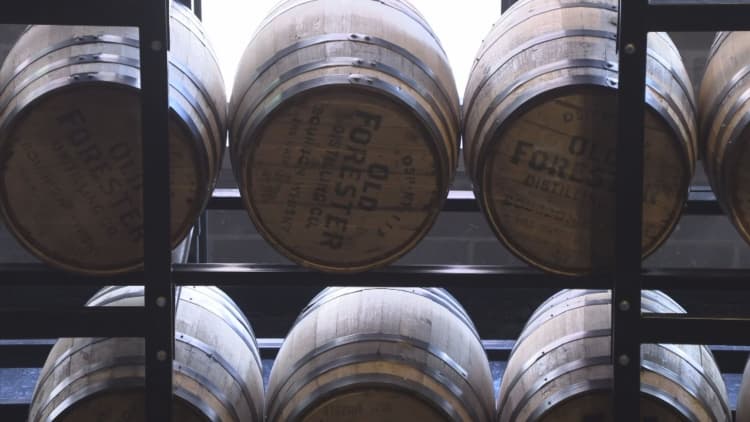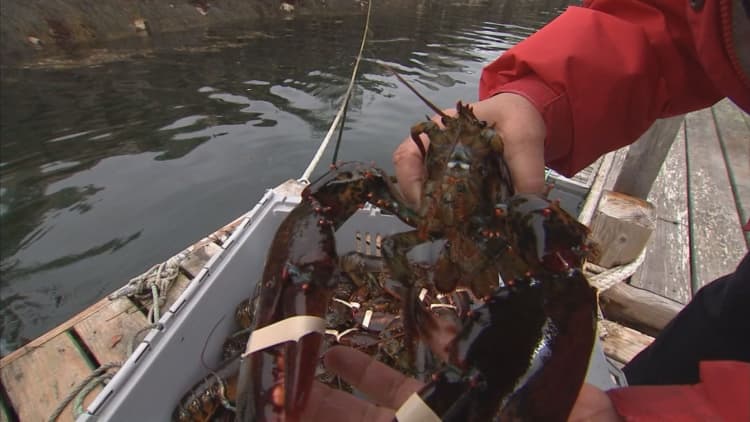
Without a visible end to the global trade conflict, the latest round of retaliatory tariffs, this time from China, generates uncertainty for a variety of U.S. exports, from lobster to bourbon.
After President Donald Trump's administration imposed 25 percent tariffs on $34 billion of Chinese goods on Friday, China responded the same day with its own list of 25 percent tariffs on U.S. imports. China is primarily taxing agricultural products from the U.S., such as soybeans and pork.
For the Maine lobster industry, the Chinese tariffs hit during its high season in July and August. Several hundred million dollars worth of American lobster were exported to China last year, and distributors have struggled to figure out what to do when a reliable market such as China disappears because of the 25 percent levy.
A distributor told NBC that he made a $1.5 million investment this spring with expectation that the lobster market in China would continue to grow, but he is unsure if that was a good plan since 20 percent of the market is now closed.
Some Maine lobster distributors had agreed-upon deals in place for shipments of millions of dollars of lobster, but the tariffs mean that the deals have been canceled. Distributors will now have to look elsewhere to find buyers for lobster that is ready to be shipped before it is too late.

The tariffs could also mean a decline in the number of Mainers who choose to pursue a career in lobster fishing.
Goods with a longer production horizon than lobster face a different set of challenges as a result of the Chinese tariffs.
Bourbon, which must age for at least two years to earn its name, also faces a 25 percent tariff.
Distillers often plan their production based on assumptions for demand six years from now. The challenge is when distillers see a sudden change in demand, it's hard to respond quickly. It might be difficult to get the oak barrels that are needed to make bourbon rather than whiskey, or to produce enough corn or have enough bottles.
Because distillers do not yet know the effect that the tariffs will have on Chinese demand for the American-made whiskey — or how long the tariffs will stay in place — they face an uncertain path ahead of them. Kentucky exported $450 million of bourbon last year.
— CNBC's Contessa Brewer and NBC's Vaughn Hillyard contributed to this report.


